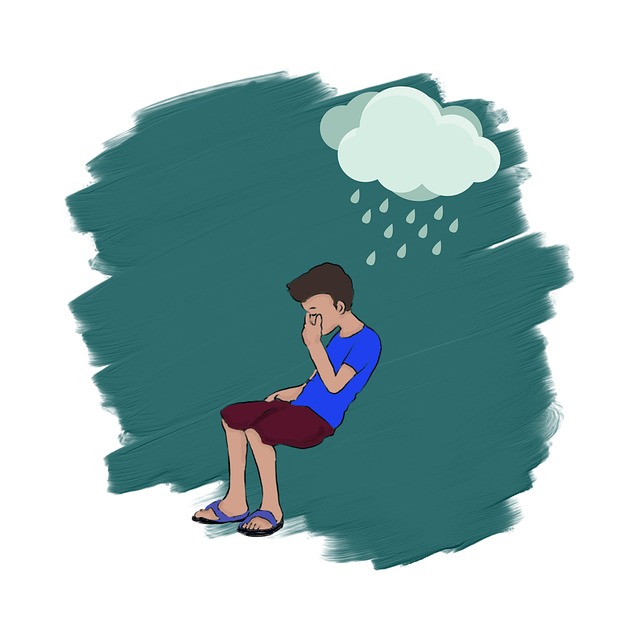Crisis Intervention Teams (CITs) can significantly enhance their effectiveness by integrating specialized training in therapy tailored for children from polyamorous and open relationships. This holistic approach combines immediate crisis intervention with skills development, empowering CIT members to address diverse mental health needs. Through comprehensive training, including Mental Health Policy Analysis and Advocacy, professionals gain the tools to offer empathetic support, advocate for systemic change, and foster healthier communities. Emphasizing therapeutic strategies suitable for these children, CITs create safe spaces for open dialogue, encourage self-awareness through creative exercises, and promote strong relationship dynamics, ultimately strengthening coping mechanisms.
In today’s complex social landscape, effective crisis intervention is more critical than ever. Crisis intervention teams (CITs) play a vital role in supporting individuals and families during distressing times. This article explores the essential components of CIT training programs, highlighting their impact on managing crises effectively. We delve into tailored strategies for diverse families, including polyamorous and open relationships, as well as therapeutic approaches for children in distress, emphasizing the importance of comprehensive training in mental health support.
- Understanding Crisis Intervention Teams: A Vital Resource for Support
- The Role of Training in Effective Crisis Management
- Tailoring Programs for Diverse Families: Polyamorous and Open Relationships
- Therapeutic Approaches for Children in Distress
Understanding Crisis Intervention Teams: A Vital Resource for Support

Crisis Intervention Teams (CITs) are a vital resource for supporting individuals and communities during times of crisis. These specialized teams, often comprising mental health professionals, first responders, and community members, are designed to provide immediate assistance to those facing emotional or psychological distress. By integrating Therapy for Children, including those in Polyamorous and Open Relationships, into CIT training programs, we enhance the team’s ability to address diverse needs effectively.
Mental Health Awareness is crucial, but it’s equally important to equip these teams with skills that promote Inner Strength Development. Through comprehensive training that includes Mental Health Policy Analysis and Advocacy, CIT members can better navigate complex situations, offer tailored support, and advocate for systemic changes that foster healthier communities. This holistic approach ensures that crisis intervention not only provides immediate relief but also empowers individuals to build resilience and cope with future challenges.
The Role of Training in Effective Crisis Management

Effective crisis intervention relies heavily on comprehensive training for mental health professionals. Training programs equip practitioners with crucial skills and strategies to navigate complex situations, whether assisting individuals struggling with therapy for children or managing dynamics unique to polyamorous and open relationships. Through role-playing scenarios, case studies, and interactive workshops, these programs foster a deep understanding of risk assessment and management planning. Mental wellness journaling exercises can also be integrated into training to enhance self-awareness and emotional regulation among professionals.
By prioritizing ongoing education, crisis intervention team members become adept at promptly identifying warning signs, de-escalating high-stress situations, and providing appropriate support. This is particularly vital for addressing the distinct challenges faced by those in non-traditional relationships or children experiencing familial trauma. Well-rounded training ensures that mental health professionals are prepared to offer empathetic, effective interventions, ultimately contributing to positive outcomes for individuals in crisis.
Tailoring Programs for Diverse Families: Polyamorous and Open Relationships

In recent years, there has been a growing recognition of the diverse family structures within society, including polyamorous and open relationships. Crisis intervention team (CIT) training programs must evolve to cater to these unique familial dynamics. Traditional approaches often fail to address the specific challenges faced by children in polyamorous households, leaving a crucial gap in support. Customized therapy for children from such families is essential to help them navigate complex emotional landscapes and ensure their mental well-being.
By incorporating specialized modules on polyamory into CIT training, organizations can enhance their crisis response capabilities. These programs should aim to educate team members about the nuances of open relationships, promoting a more inclusive and empathetic approach during interventions. Moreover, stress management workshops tailored for these families can empower them to cope with potential stressors and foster healthier relationship dynamics. Mentoring from mental health professionals specializing in non-monogamy is vital to ensure effective Crisis Intervention Guidance, reflecting the evolving needs of modern family structures within Mental Health Policy Analysis and Advocacy efforts.
Therapeutic Approaches for Children in Distress

In crisis intervention team training programs, a significant focus is placed on therapeutic approaches tailored for children in distress. When addressing issues related to polyamorous and open relationships, it’s crucial to create a safe space that embraces diverse family structures. Therapists should engage in crisis intervention guidance that facilitates open dialogue, encouraging children to express their feelings and fears without judgment. Techniques such as self-awareness exercises can help kids understand their emotions better, fostering resilience against stress and trauma.
These interventions go beyond mere problem-solving; they aim to enhance coping mechanisms and promote healthy relationships. Self-Awareness Exercises tailored for young individuals with polyamorous or open family dynamics can include creative activities, guided meditations, or narrative exercises that help them make sense of their experiences. By integrating these practices into crisis intervention training, professionals empower themselves to offer effective support, ensuring children in distress feel understood and valued in their unique familial contexts.
Crisis intervention team training programs play a pivotal role in equipping individuals with the necessary skills to manage crises effectively. By understanding diverse family structures, such as polyamorous and open relationships, and integrating therapeutic approaches tailored for children in distress, these programs ensure comprehensive support. Through specialized training, crisis teams can navigate complex situations with empathy and professionalism, ultimately enhancing their ability to provide vital resources for those in need.














